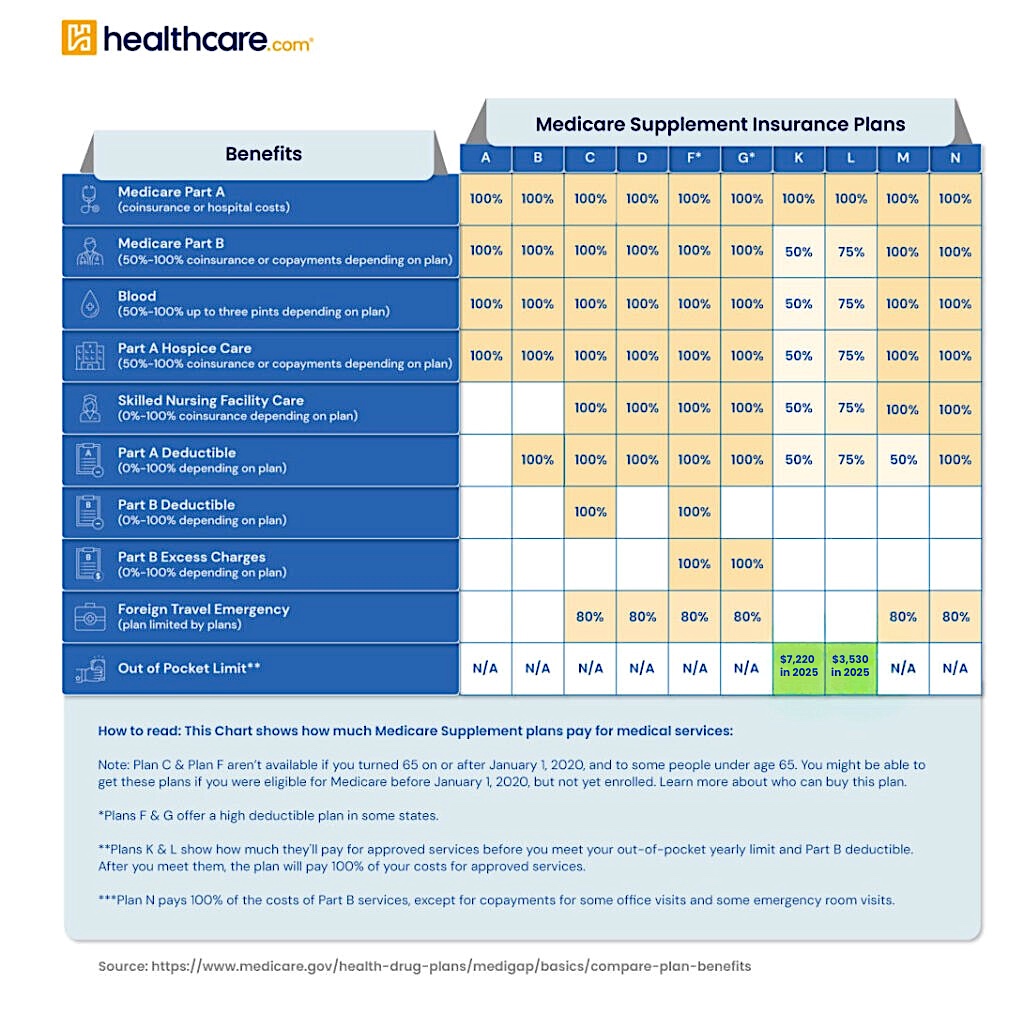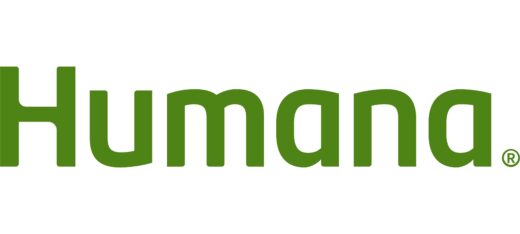Written by Leonie Dennis
HealthCare Writer
We aim to help you make informed healthcare decisions. While this post may contain links to lead generation forms, this won’t influence our writing. We follow strict editorial standards to give you the most accurate and unbiased information.
What You Need to Know
- Medicare Supplement plans, also known as Medigap, help pay for out-of-pocket costs not covered by Medicare Part A and Part B.
- Alabama insurance companies must accept your Medicare Supplement (Medigap) plan application if you’re in your Medigap Open Enrollment Period or have guaranteed issue rights.
- The three most popular Medigap policies are typically Plans F, G, and N.
What Are Medicare Supplement Plans in Alabama?
Medicare is a federal health insurance program for individuals aged 65 and older, as well as younger people with qualifying disabilities or health conditions (e.g., end-stage renal disease).
Original Medicare includes Part A (Hospital Insurance) and Part B (Medical Insurance), but it doesn’t cap out-of-pocket expenses. That means you may still have to pay deductibles, copayments, and coinsurance. Medicare Supplement plans help cover these costs.
These plans are standardized nationwide and identified by letters (A through N). That means Plan A from one insurer offers the same benefits as Plan A from another—though premiums may vary.
Most Alabama residents can enroll in a Medicare Supplement plan at age 65 or older. However, companies in Alabama are not required to sell Medigap policies to individuals under 65 who qualify for Medicare due to disability or chronic illness.
Learn how these plans can help manage your healthcare costs in the Heart of Dixie.
Compare options HERE & start your health plan journey.
When Can You Enroll in a Medicare Supplement (Medigap) Policy?
You can apply for a Medigap policy at any time. However, applying outside of your Medigap Open Enrollment Period may limit your options and increase your costs.
Your Medigap Open Enrollment Period is a six-month window that begins the month you’re both 65 (or older) and enrolled in Medicare Part B. During this time, insurers must offer you any plan they sell at standard rates—regardless of your health history.
Outside of this enrollment period, insurance companies in Alabama may use medical underwriting to evaluate your application. They could deny coverage or charge higher premiums based on preexisting conditions—unless you qualify for guaranteed issue rights.
Guaranteed issue rights occur when you lose other health coverage, such as leaving a Medicare Advantage plan or group insurance. In these cases, insurers must sell you a Medigap policy and can’t charge more due to your health.
What Are the Most Popular Medicare Supplement Plans?
Nationwide and in Alabama, the three most commonly selected Medigap plans are:
-
- Plan F: Offers the most comprehensive coverage, including nearly all Medicare out-of-pocket costs. However, it’s only available to people who were eligible for Medicare before January 1, 2020.
- Plan G: Covers everything Plan F does except for the Medicare Part B deductible.
- Plan N: Covers most essential costs but includes copayments for some doctor and ER visits. It doesn’t cover Part B excess charges.

How Do You Choose a Medicare Supplement Plan?
To choose the right Medigap plan in Alabama, consider your:
- Health needs: Do you frequently visit the doctor or anticipate hospital stays?
- Budget: How much can you afford in monthly premiums and occasional out-of-pocket expenses?
- Travel habits: Do you need coverage for out-of-state or foreign medical services?
Once you’ve selected a plan letter (such as G or N), compare policies across different insurance companies. All Medigap plans with the same letter offer identical benefits, but premiums vary by insurer.
Insurance companies use different pricing models:
- Attained age rating: Premiums increase as you get older.
- Issue age rating: Premiums are based on the age when you first buy the policy.
- Community rating: Everyone pays the same premium, regardless of age.
Always compare the same plan (e.g., Plan G vs. Plan G) to get an accurate comparison of value.
Compare options HERE & start your health plan journey.
How Much Do Medigap Policies Cost?
Medigap premiums in Alabama vary based on several factors:
- Your age and gender
- Whether you use tobacco
- The plan type you select
- The pricing method used by the insurer
Though the benefits are standardized, premiums can differ significantly between companies.
What If You Want to Change Your Medicare Supplement Plan?
You can apply to change Medigap plans at any time. However, unless you’re in your Open Enrollment Period or have guaranteed issue rights, insurers may review your health status before approving a new policy.
Alabama also offers a 30-day “free-look” period. During this time, you can test a new policy while still keeping your current one. Just make sure to pay both premiums during this overlap period.
What Are Alternatives to Medicare Supplement Plan?
Medicare Advantage plans are a popular alternative to Medigap. These are all-in-one plans offered by private insurance companies that contract with Medicare.
These plans include Part A (hospital) and Part B (medical), and most include Part D (prescription drug) coverage as well. Many also offer extra benefits like dental, vision, hearing, and wellness programs.
However, unlike Medigap, Medicare Advantage plans generally require you to use a network of providers and may have more restrictions. You cannot enroll in both Medigap and a Medicare Advantage plan at the same time.
Learn more about Alabama Medicare Advantage plans.
Shop for a Medicare plan with additional benefits!
Medicare Part D?
Medicare Part D plans provide prescription drug coverage and are purchased separately from Medigap policies.
- Who needs it: Anyone with Original Medicare (Parts A and/or B) who also wants prescription coverage.
- What it covers: Prescription drugs. Specific coverage varies by plan.
- How it’s offered: Through Medicare-approved private insurers.
- Not needed if: You’re enrolled in a Medicare Advantage plan that includes drug coverage (MAPD).
Do Medigap Plans Cover Prescription Drugs?
No. Medigap plans do not cover prescription drugs. If you need drug coverage, you must purchase a separate Medicare Part D plan.
Medicare Resources in Alabama
Alabama residents can get help understanding their Medicare options through the following programs:
- State Health Insurance Assistance Program (SHIP): Offers free one-on-one Medicare counseling.
- Alabama Department of Insurance: Provides consumer assistance and oversees Medigap plan regulations.
- Alabama Medicaid Program: Offers benefits for qualifying low-income individuals and may coordinate with Medicare.
- Extra Help (Social Security Program): Assists eligible low-income individuals with Medicare Part D costs.
Next Steps
If a Medicare Supplement plan in Alabama sounds right for you, take the next step by comparing options available in your area. You can explore plans online or connect with a licensed insurance agent for personalized support and expert guidance.
Thank you for your feedback!
U.S. Government Website for Medicare. “Choosing a Medigap Policy: A Guide to Health Insurance for People With Medicare.” medicare.gov (accessed September 23, 2020).
Alabama Department of Insurance. “Medicare Disability Supplement Insurance.” aldoi.gov (accessed September 30, 2020).
Kaiser Family Foundation. “Total Number of Medicare Beneficiaries.” kff.org (accessed September 23, 2020).
U.S. Government Website for Medicare. “Part B Costs.” medicare.gov (accessed September 23, 2020).
U.S. Government Website for Medicare. “Supplement Insurance (Medigap) Plans in Alabama.” medicare.gov (accessed October 15, 2021).
U.S. Government Website for Medicare. “Supplement Insurance (Medigap) Plan F Policies.”7. “Total Number of Medicare Beneficiaries.”








